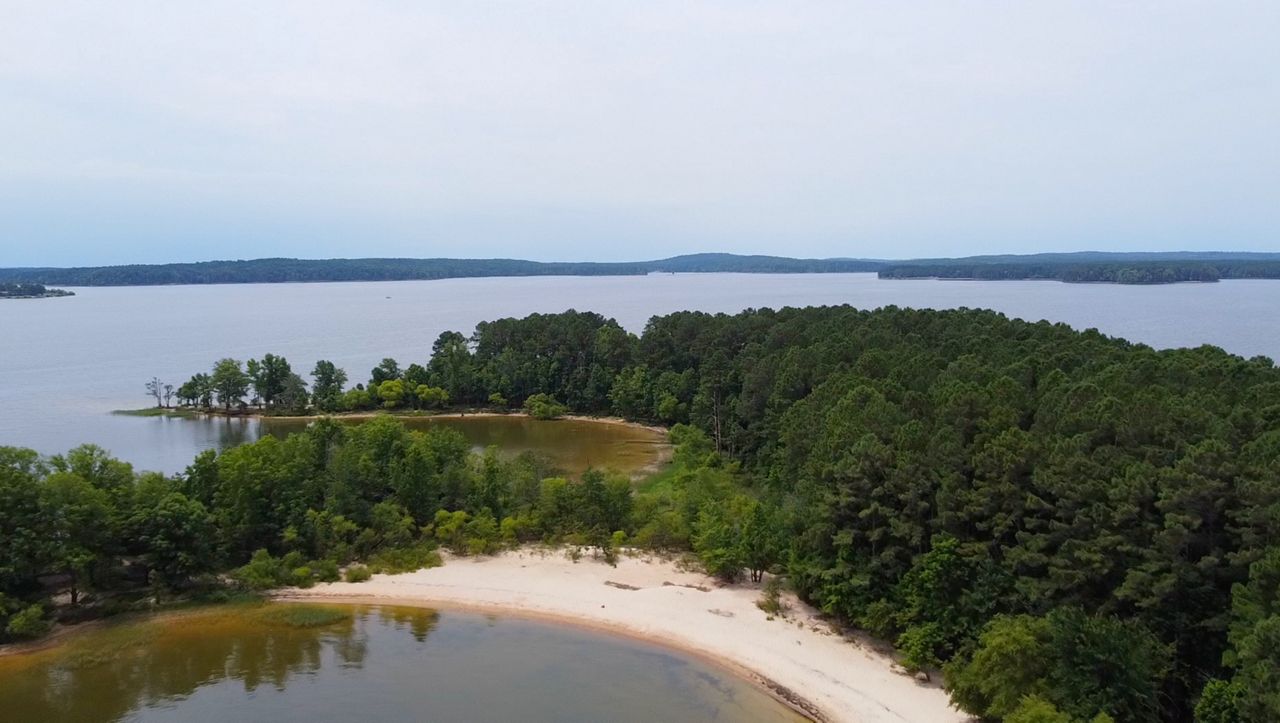CHATHAM COUNTY, N.C. — The summer heat has increased the presence of cyanobacteria in Jordan Lake once again to levels capable of killing pets.
Jordan Lake is just under 22 square miles and offers many public access locations
Dogs became sick and died after swimming in the lake over the weekend
Look for discoloration or residue on the surface before letting children or pets enter water

Over the weekend, Chatham County health officials released a report stating that multiple dogs became terminally ill and then died after swimming in the water at one of Jordan Lake's boat launches.
Related article: Dogs got sick and died after swimming at Jordan Lake, public health officials warn
Many people in the Triangle enjoy the numerous beach access areas, boat launches and walking trails offered around the 22-square-mile lake.
“We just love Jordan Lake,” said Aline Maiersberger, a regular with her family at the lake. “It's just so safe, and the kids just have the best time. The water is so warm in the summer. Every time we have family in town we tell them to come with us to Jordan Lake for the day.”

Maiersberger regularly brings her three young kids to enjoy the water, and the presence of toxic algae blooms is startling news to her. The bacteria does have the potential to harm children and pets if lake water happens to be swallowed.
“The water seems so clean, they [her kids] ask actually to come here instead of the pool,” Maiersberger said.
While the North Carolina Department of Environmental Quality and the Department of Health and Human Services continue to investigate the issue, health officials have advised pet owners to steer clear of any water that may be discolored or have a film on the surface.
This has been a recurring battle for the state of North Carolina, which has already spent over a million dollars attempting to clean up the lake and treat toxic algae blooms in years past.

Signs at the beach where Maiersberger and her kids swim during the summer warn of the presence of bacteria in the water which are generally harmless to swimmers, but in the case of cyanobacteria, or blue-green algae, it can can cause sickness in both humans and animals.
“I haven't seen dogs here, but tons of kids and family and young families,” Maiersberger said.
She said having a space where people feel safe relaxing is so important and that includes the health and safety of their pets.
“It truly is our second home so for that reason I can't even imagine not having this as an option,” Maiersberger said.






